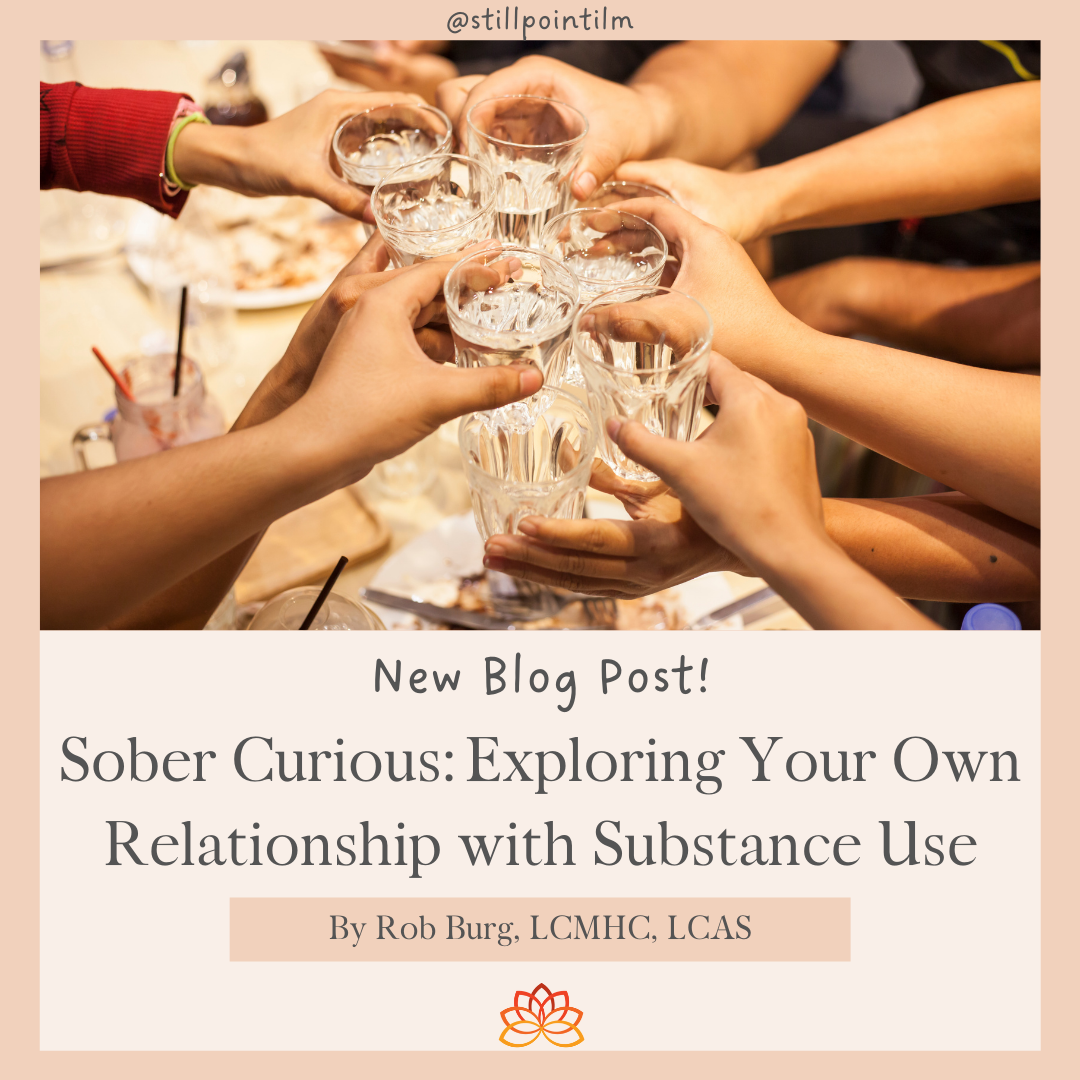Sober Curious: Exploring Your Own Relationship with Substance Use
by Rob Burg, LCMHC, LCAS
Have you ever questioned the nature of your substance use? Maybe you have asked questions like “am I drinking too much or too often”, “is this substance really that big of a deal?”, “is this normal use?” etc. There is a new concept floating around in the counseling world called “sober curious”. In a nutshell, being sober curious is having the option to choose, question or change one’s substance use for physical or mental health reasons.
It can often be difficult to really see the consequences of our behaviors, and even more difficult to not get defensive when someone gives us feedback that there could potentially be a problem. I have worked with a very wide range of clients who have had varied levels and types of substance use issues. Not everyone is the same when it comes to their history with substance use, how it has affected them or how much is “too much”. It is very common to want to compare to those we know and interact with the most. Some difficulties with those types of comparisons are often that they are biased. You may have a group of friends that it seems “everybody” drinks alcohol or uses a certain substance. When you explore further is it possible that you met a lot of these friends at the bar or from people and places related to alcohol or substance use. Maybe if you explore further, it may become clear that a lot of the time you spend with these individuals is spent doing substances together, talking about doing substances or reminiscing about the last time you did substances together. Your idea of what a “problem” is may be based on what you have seen in media or directly with the behaviors of those closest to you that may have some substance use issues or concerns themselves. To add to the difficulty of assessing the potential concerns or problems is the stereotypes and stigmas about substance use. There is still a lot of stigma about substance use being a “moral” problem or something that is a bad reflection upon the individual
One of the first steps in really exploring your own relationship with your substance use is to dig deep to see your perception of substance use, the underlying factors that contribute to your use, and the biases that you may have related to substances. Getting involved with counseling can be a helpful way to identify and challenge unproductive beliefs and patterns, have the space to process underlying factors (history, relationships, trauma etc.), identify triggers that lead to unhealthy use, and explore potential alternative coping skills to meet your needs and deal with issues as they arise.
If this speaks to you then feel free to schedule an appointment and we can discuss a way to support you in your journey.
